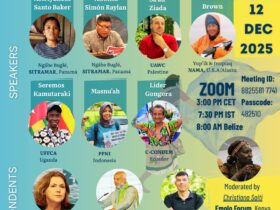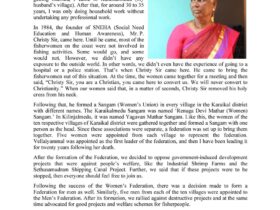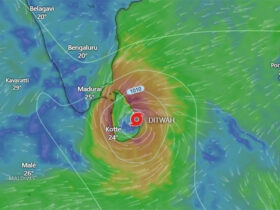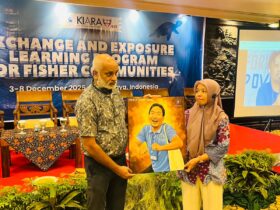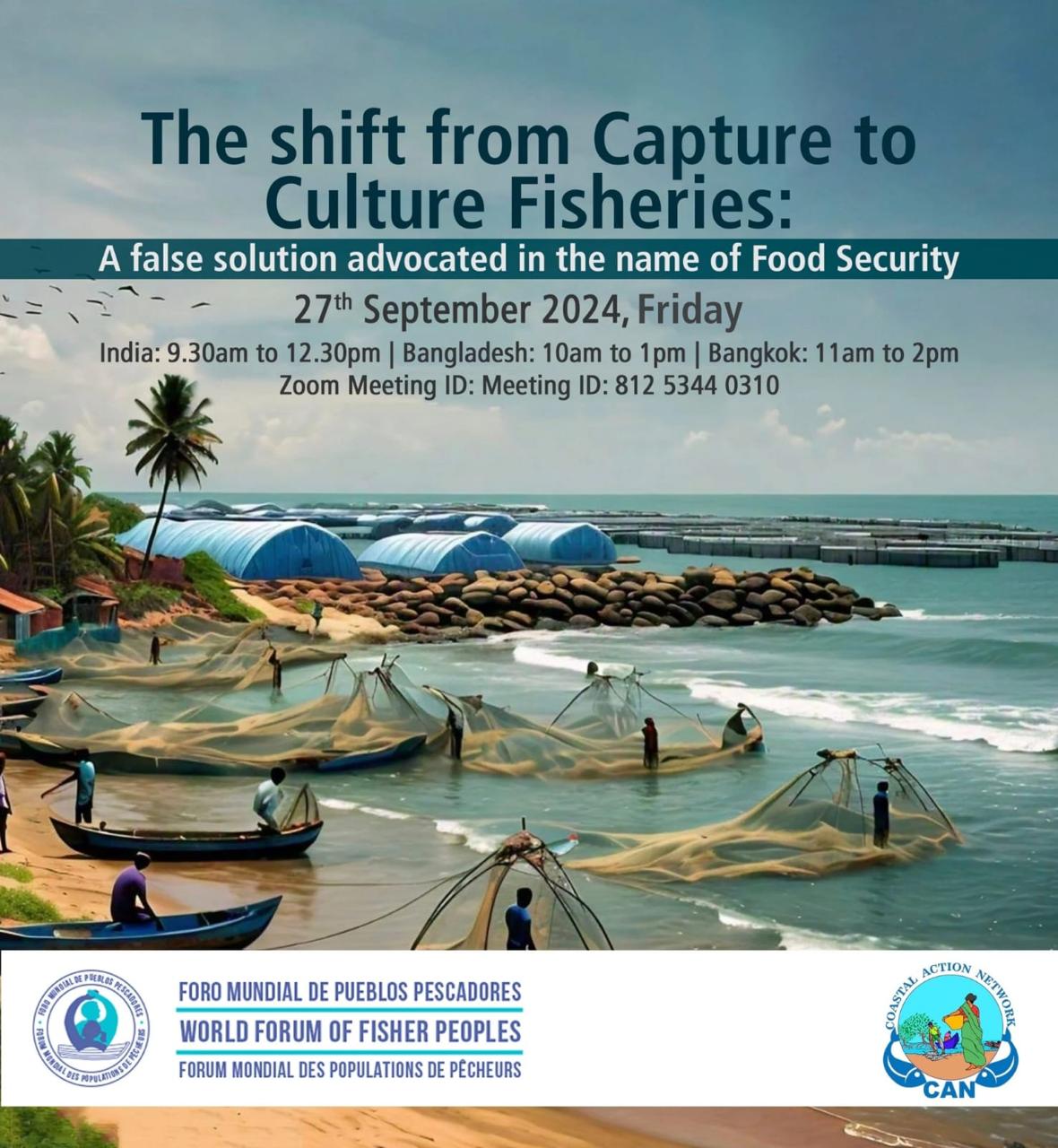As part of the lead-up to the 8th General Assembly of the World Forum of Fisher People (WFFP) in Brazil this November, the second webinar in the global series took place, focusing on the Asia-Pacific region. Organized by WFFP in collaboration with the Coastal Action Network (CAN), the webinar brought together fisher representatives, researchers, and activists to discuss the urgent shift from traditional capture fisheries to industrial aquaculture and the challenges this poses for food sovereignty.
Webinar Focus:
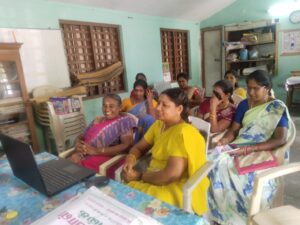 The session, titled “The Shift From Capture to Culture Fisheries & Challenges in Advancing Food Sovereignty,” centered around the growing global trend of promoting aquaculture as a replacement for traditional capture fisheries. Participants explored the impact of this shift on fisher communities, the environment, and global food systems.
The session, titled “The Shift From Capture to Culture Fisheries & Challenges in Advancing Food Sovereignty,” centered around the growing global trend of promoting aquaculture as a replacement for traditional capture fisheries. Participants explored the impact of this shift on fisher communities, the environment, and global food systems.
Historically, capture fisheries have been more than just an occupation for fisher peoples – they represent a way of life and cultural identity. However, this traditional practice has come under threat as corporate-backed industrial fishing, supported by government subsidies, has led to overfishing, habitat destruction, and the depletion of marine resources. This crisis has opened the door for the promotion of large-scale aquaculture projects, including Mari culture, Seaweed Farming, and Industrial Shrimp Aquaculture. While these initiatives are often touted as solutions for sustainability, food security, and economic growth, many argue that they compromise environmental health and marginalize small-scale fishers.
The webinar highlighted the critical need to challenge the push towards unsustainable aquaculture and reaffirm the importance of protecting traditional fishing practices and the ecological balance that sustains them.
Webinar Highlights:
- Welcome and Introduction:
Jesurathinam, WFFP Asia Pacific Continental Fora, set the stage for the discussion, emphasizing the importance of solidarity among fisher communities in the face of these global challenges. - Context Setting:
Gandimathi from the Coastal Action Network (India) provided an overview of the current market-driven trends in fisheries, setting the context for the webinar’s focus on the Asia-Pacific region. - Keynote Address:
Renowned environmental activist Dr. Vandana Shiva, Founder of Navdanya, delivered the keynote address. She discussed the deep-rooted connections between food sovereignty, ecological sustainability, and the protection of traditional fisher livelihoods. She also critiqued the corporate-driven push for aquaculture and its detrimental impact on small-scale fishers.
Country Presentations:
Speakers from various Asia-Pacific countries shared their experiences: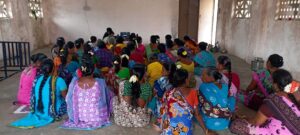
- Md. Zahidul Islam (COAST), Bangladesh
- Praween Julpakdee (Sustainable Development Foundation), Thailand
- Kovada Lakshmi (TFWU & NFF), India
- Pradeep Elangovan (SNEHA), India
- Susan Gui (KIARA), Indonesia
Each speaker shed light on the challenges faced by fisher communities in their respective countries and the need for policy changes to protect their traditional practices and food sovereignty.
Thematic Expert Presentations:
The session featured presentations by thematic experts:
- Siddharth Chakravarthy (Research Scholar, Queen Mary University, London)
- Dr. Paula Satizabal (Marine Governance Group, Germany & PAR)
- Jones Spartegus (Research Scholar, PAR, India)
These experts offered a deeper analysis of the environmental, economic, and social impacts of the shift towards aquaculture, emphasizing the need for sustainable alternatives that prioritize the well-being of coastal communities.
Response to Presentations:
Michael Fakhri, the UN Special Rapporteur on the Right to Food, responded to the presentations by reinforcing the need to respect the rights of fisher peoples and ensure that international food systems do not marginalize vulnerable communities.
Moderator:
The session was moderated by Vijayan MJ from the South Asia Solidarity Centre (SASC) & Pakistan-India People’s Forum for Peace and Democracy (PIPFPD), who guided the discussion and facilitated an engaging dialogue among the participants.
For the second webinar of the series, The Shift from Capture to Culture Fisheries & Challenges in Advancing Food Sovereignty held on 27th September 2024
For the recording of the first webinar (Part 1&2) *Customary Governance, Tenure and Traditional Rights of Fisher Peoples
Part 1 9th September 2024: country case presentations from Bangladesh, India, Thailand, Indonesia, Malaysia, Sri Lanka
https://youtu.be/ag9yNXApQ50
Part 2 10th September 2024 : Response to country presentations and thematic presentations
https://youtu.be/Q2RhGaMLt6Y
WFFP_Capture_to_Culture_Presentation_27_09_24

